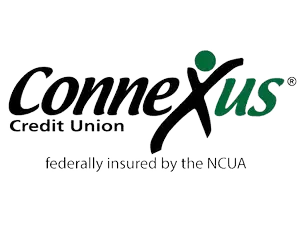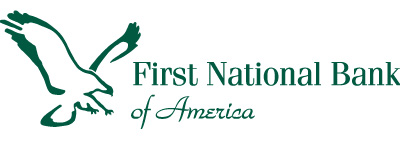FEATURED PARTNER OFFER
Quontic Bank Certificate of Deposit
Learn More ![]()

On Quontic Bank's Website
Annual Percentage Yield
2.00% to 3.30%
Minimum Deposit Requirement
$500
Terms
6 Months to 5 Years
|
|
You might be using an unsupported or outdated browser. To get the best possible experience please use the latest version of Chrome, Firefox, Safari, or Microsoft Edge to view this website. |
Banks and credit unions offering the best CDs pay a high APY or dividend rate relative to the national average. They also maintain reasonable minimum deposit requirements and favorable compounding schedules. Excellent customer and digital experiences are standard at these institutions as well. Below, we look at the best banks and credit unions for certificates of deposit, and the best CD and certificate rates by term.
2.00% to 3.30%
$500
6 Months to 5 Years
We’ve compared 142 CD and certificate accounts at 84 nationally available banks and credit unions to find some of the best accounts available. See below to learn more about why we picked each account, the pros and cons, and to access individual bank reviews.
On this list, you’ll first find the best banks and credit unions for CD rates overall. Then you’ll also see the best banks and credit unions for specific CD term lengths.
Annual percentage yields (APYs) and account details are accurate as of July 13, 2022.
1.76% to 2.96%
$5,000
12 Months to 5 Years
Connexus Credit Union pays some of the highest yields available on its share certificates (which would be called CDs at a bank). Five share certificate terms are available: 12 months, 24 months, 36 months, 48 months and 60 months, with APYs ranging from 1.76% to 2.96%. The minimum deposit is $5,000.
Connexus also ranks well for digital experience. Its mobile app is rated highly on both the App Store and Google Play.
Unlike some credit unions, Connexus doesn’t require you to open a checking account in order to open a share certificate. It does, however, require credit union membership. If you don’t qualify under the regular group and geographic categories of membership, you can become eligible to be a member of the credit union by making a one-time $5 donation to the Connexus Association.
Read our full Connexus Credit Union Review.
The yields earned on credit union accounts are referred to as dividends rather than interest. At Connexus, dividends are compounded and credited to your account quarterly. Early withdrawal penalties vary by term. Share certificates automatically renew at maturity, and there’s a 10-day grace period after maturity to withdraw funds. All members are required to have a Connexus savings account, with a minimum deposit of $5.
2.50% to 3.35%
$1,000
12 Months to 7 Years
First National Bank of America (FNBA) has seven CD terms—ranging from 12 months to 84 months—with competitive APYs from 2.50% to 3.35% and a relatively low minimum deposit requirement of $1,000. CDs from FNBA may be particularly good for savers looking for longer-term CDs. It’s one of the few banks in our database offering CD terms of 72 and 84 months, paying 3.05% and 3.10% on those terms, respectively.
FNBA has a highly rated mobile app on both the App Store and Google Play for those seeking to manage their CD accounts on the go.
Read our full First National Bank of America Review.
Interest is compounded and credited to your account quarterly. The early withdrawal penalty varies by term. The bank provides a notice approximately 30 days before the CD matures, at which time you can decide to withdraw your funds, automatically renew your CD or roll over your funds to a different CD. Rates and CD options may differ slightly for Michigan residents.
2.00% to 3.30%
$500
6 Months to 5 Years
Quontic Bank offers competitive rates on its CDs and provides innovative online and mobile tools to manage those CDs—precisely what you would expect from an online bank. Quontic’s user-friendly mobile app is available on both iOS and Android.
In total, Quontic offers five different CD terms to choose from: six months, 12 months, 24 months, 36 months and 60 months, with APYs ranging from 2.00% to 3.30%. You can fund your account by transferring money from an existing Quontic account, from another bank via ACH transfer or by using Plaid technology. The minimum deposit is a low $500.
Quontic claims you can open an account online in three minutes or less.
Read our full Quontic Bank Review.
Interest compounds daily and is credited monthly. Once your CD matures, Quontic Bank provides a 10-day grace period to withdraw your funds. Otherwise, it automatically renews the CD. Early withdrawal penalties vary by term.
0.95% to 3.10%
$1,000
6 Months to 7 Years
PenFed Credit Union pays competitive yields, ranging from 0.95% to 3.10% APY, on nine different Money Market Certificate terms, from six months to seven years. And, at $1,000, the minimum deposit requirement is fairly modest.
The credit union gets excellent customer satisfaction scores. It also has a highly rated mobile app, available on iOS and Android. And don’t let the “money market” in this certificate’s name confuse you; this is a share certificate, not a money market account.
With PenFed, you choose your maturity option when you open your certificate and can change it anytime prior to maturity. This gives you some flexibility, and extra time, to decide what you’d like to do with the funds in your account when it matures. You can transfer the funds into another PenFed account, roll it into a new certificate, get a mailed check or transfer it via ACH.
You can join PenFed Credit Union by making a $5 deposit into a savings account.
Read our full PenFed Credit Union Review.
The yields earned on credit union accounts are referred to as dividends rather than interest. Dividends on six-month certificates are earned on a simple interest basis and are paid when the certificate matures. Dividends on all other CDs are compounded daily and credited monthly. Early withdrawal penalties vary by term.
1.50% to 2.40%
$1,000
6 Months to 5 Years
CommunityWide Federal Credit Union provides competitive yields on its certificate accounts. Savers can choose from seven different terms: six months, 12 months, 18 months, 24 months, 36 months, 48 months and 60 months, with APYs ranging from 1.50% to 2.40%. The minimum deposit is a relatively modest $1,000.
Unlike many other credit unions and banks, CommunityWide won’t automatically renew your certificate account upon maturity. Instead, you can choose to renew it for another term or to deposit the principal and interest into another account at CommunityWide or another institution.
CommunityWide requires membership in the credit union to open a certificate account. Membership is open to U.S. citizens who open a savings account with a $10 minimum deposit, $5 of which goes to an organization of your choice—the Marine Corps, Habitat for Humanity or Goodwill.
Read our full CommunityWide Federal Credit Union Review.
The yields earned on credit union accounts are referred to as dividends rather than interest. Dividends are compounded and credited to your certificate account monthly. Early withdrawal penalties vary by term.
1.00% to 2.65%
$50
3 Months to 5 Years
Bethpage Federal Credit Union’s Certificate Accounts check several boxes. These certificates pay competitive dividends, ranging from 1.00% to 2.65% APY, and have a very low $50 minimum deposit and balance requirement. Bethpage offers nine standard certificates, ranging from three months to 60 months.
Notably, Bethpage is one of the few institutions on our list that offers a very competitive dividend on a three-month certificate, making it a good spot for those interested in saving for near-term goals.
You can manage your certificate account online or via Bethpage’s mobile app. And you can become a member at Bethpage by making a $5 deposit into a Bethpage savings account.
Read our full Bethpage Federal Credit Union Review.
The yields earned on credit union accounts are referred to as dividends rather than interest. For certificates opened online, dividends are compounded daily and credited monthly. Members who open a six-, 12-, 24-, 36- or 39-month certificate in a branch can select a dividend period and crediting frequency of monthly or quarterly. There’s a seven-day grace period after your certificate matures to renew or change the account. Early withdrawal penalties equal either 90 or 180 days’ dividends, depending on term length.
2.50% to 3.35%
$1,500
12 Months to 5 Years
Overall, Bread Savings offers competitive rates on its CDs. You can open one by making a $1,500 minimum deposit. Five term lengths are available: 12 months, 24 months, 36 months, 48 months and 60 months. APYs range from 2.50% to 3.35%, depending on term length.
Bread Saving’s CDs allow account holders to deposit up to $1 million per account and $10 million per customer, a balance maximum that’s significantly higher than offered by other banks on our list. Like the other banks on this list, CDs at Bread Savings are insured up to $250,000 per depositor, for each ownership category, by the FDIC in the event of a bank failure. But the option to deposit more is available.
Customers can monitor their CD accounts using the Bread Savings mobile app.
Read our full Bread Savings Review.
Interest is compounded daily and credited monthly. The early withdrawal penalty equals either 180 or 365 days’ simple interest, depending on the term. There’s a 10-day grace period to withdraw funds or close the account after maturity. If you don’t take action, your CD will automatically renew.
0.90% to 2.85%
$1,000
3 Months to 5 Years
TIAA Bank offers 10 CD terms, ranging from three months to five years. The minimum deposit requirement to open an account is relatively modest—$1,000. And the bank’s CD rates, ranging from 0.90% to 2.85% APY, are competitive across term lengths.
TIAA also offers a 20-day advanced maturity alert, giving you plenty of time to figure out what to do with your funds. There’s also a 10-day grace period following the maturity date.
Customers can check in on their CD account via TIAA’s website or the bank’s highly rated mobile app.
Read our full TIAA Bank Review.
Interest is compounded daily and credited monthly. Early withdrawal penalties vary by term length.
0.35% to 2.80%
$250
91 Days to 5 Years
At Consumers Credit Union, you’ll find 11 certificate terms from 91 days to five years offering competitive dividends ranging from 0.35% to 2.80% APY. Historically Consumers has offered some of its highest APYs on their medium term certificates. There’s a low minimum deposit requirement to open a certificate—$250—and dividends compound daily and credit to your account monthly.
Consumers is mostly an online credit union, although it does offer some branch locations throughout Illinois. If you’re not near a branch, you can take care of all of your banking needs via Consumers’ website and mobile app. It also has a 24/7 live chat feature and customer service is available by phone six days a week.
You can join Consumers Credit Union by making a one-time donation of $5 to the Consumers Cooperative Association.
Read our full Consumers Credit Union Review.
The yields earned on credit union accounts are referred to as dividends rather than interest. Dividends compound daily and credit to your account monthly. For terms of one year or less, the early withdrawal penalty is 60 days’ dividends. For terms of more than one year, the early withdrawal penalty is 120 days’ dividends. There’s a grace period of 10 days after your certificate matures to withdraw funds from your account. Otherwise, your certificate automatically renews.
1.05% to 2.90%
$500
6 Months to 6 Years
Marcus by Goldman Sachs offers nine different terms, from six months to six years, with competitive rates ranging from 1.05% to 2.90% APY and a low minimum deposit requirement of $500.
Marcus allows for the penalty-free withdrawal of interest earned on your CD each month. You can either transfer the interest to a Marcus Online Savings Account or an external bank account. Just keep in mind that withdrawing interest lowers the overall amount you can earn on your investment.
Marcus also offers a 10-day CD rate guarantee. If the rate on the CD term you select goes up within the first 10 days after funding your account, you’ll automatically get the higher rate. You must deposit at least $500 within the first 10 days to get that guarantee.
Like many other online banks, it has a mobile app that provides 24/7 access to your accounts.
Read our full Marcus by Goldman Sachs Review.
Interest is compounded daily and credited monthly. There’s a 10-day grace period after the maturity date to withdraw funds, renew the CD or close the CD and open a new one. The CD automatically renews if you take no action.
If you’re shopping for a particular CD term, check out the best CD rates by term below. Although APY is the primary factor in our ratings, these banks and credit unions also rank well in other categories, such as minimum requirements, interest compounding frequency, customer experience and digital banking options.
| Bank/Credit Union | APY | Minimum |
|---|---|---|
| TotalDirectBank | 1.50% | $25,000 |
| Bethpage Federal Credit Union | 1.00% | $50 |
| TIAA Bank | 0.90% | $1,000 |
| Consumers Credit Union | 0.35% | $250 |
| Bank/Credit Union | APY | Minimum |
|---|---|---|
| Quontic Bank | 2.00% | $500 |
| CommunityWide FCU | 1.50% | $1,000 |
| Synchrony Bank | 1.30% | $0.01 |
| PenFed Credit Union | 0.95% | $1,000 |
| Bank/Credit Union | APY | Minimum |
|---|---|---|
| Bread Savings | 2.50% | $1,500 |
| First National Bank of America | 2.50% | $1,000 |
| PenFed Credit Union | 2.00% | $1,000 |
| CommunityWide FCU | 1.75% | $1,000 |
| Bank/Credit Union | APY | Minimum |
|---|---|---|
| Synchrony Bank | 2.25% | $0.01 |
| Live Oak Bank | 2.35% | $2,500 |
| Ally Bank | 2.25% | $0.01 |
| PenFed Credit Union | 2.25% | $1,000 |
| Bank/Credit Union | APY | Minimum |
|---|---|---|
| Quontic Bank | 3.00% | $500 |
| First National Bank of America | 2.75% | $1,000 |
| Synchrony Bank | 2.40% | $0.01 |
| CommunityWide FCU | 2.20% | $1,000 |
| Bank/Credit Union | APY | Minimum |
|---|---|---|
| Quontic Bank | 3.10% | $500 |
| First National Bank of America | 3.00% | $1,000 |
| PenFed Credit Union | 2.65% | $1,000 |
| Synchrony Bank | 2.60% | $0.01 |
| Bank/Credit Union | APY | Minimum |
|---|---|---|
| First National Bank of America | 3.05% | $1,000 |
| PenFed Credit Union | 2.75% | $1,000 |
| Synchrony Bank | 2.60% | $0.01 |
| CommunityWide FCU | 2.35% | $1,000 |
| Bank/Credit Union | APY | Minimum |
|---|---|---|
| PenFed Credit Union | 3.00% | $1,000 |
| Quontic Bank | 3.30% | $500 |
| First National Bank of America | 3.25% | $1,000 |
| Connexus Credit Union | 2.96% | $5,000 |
Certificates of deposit are time deposit accounts. They pay a fixed rate of interest on the money you invest for a fixed period of time. Unlike a savings account, CDs generally don’t allow you to withdraw the principal at any time during the term. If you withdraw money before the maturity date, you’ll often have to pay an early withdrawal penalty.
CDs lock up your money for a set period. In exchange, the bank or credit union pays an interest rate that’s generally higher than that found on a savings account. Banks and credit unions offer CDs and certificates in a variety of terms.
Typically, the longer the term, the higher the interest rate. However, the Covid-driven uncertainty in the U.S. economy has caused some banks to price CDs differently recently, such as paying the same rate for all terms, or paying a higher APY for a shorter term.
CDs may be worthwhile for those who want low risk and guaranteed returns. They can also benefit those interested in keeping their savings locked up from temptation.
Before you settle on a CD, make sure you shop around and compare CD rates to ensure you’re getting the highest rate of return possible.
Another important consideration with certificates and CDs is the likelihood of having to pay an early withdrawal penalty if you withdraw your funds before the stated maturity date.
Banks and credit unions offer CDs in a wide range of terms and types. While APY may be the main factor in play when shopping for a CD, there are other factors to consider as well. Here’s what to keep in mind when choosing a CD:
Perhaps most importantly, consider your goals. CDs generally work best for short-term financial goals, like saving up for a down payment on a car. The CD you choose should closely match the financial goal you’re trying to meet. For example, if you plan on purchasing a vehicle in a year, consider investing in a one-year CD with a high yield. This allows you to access your money when you need it, and it’s also an excellent way to keep you from dipping into your savings prematurely.
Traditional CDs aren’t your only option. There are a number of different types of CDs available, all of which are beneficial in different ways. If you need more liquidity out of a CD, for example, you may benefit from a no-penalty CD.
Longer-term CDs tend to pay higher yields. They also require you to lock up your money for an extended period, unless you’re willing to incur an early withdrawal penalty. One way to get the best of both worlds is to use a CD ladder strategy. Savers ladder their investment by spreading their money across different CDs with varying terms. A portion of the money goes toward short-term CDs, while another portion of the funds is allocated to longer-term CDs.
As one of the shorter-term CDs matures, the money might be reinvested in a new five-year CD. Eventually, you’d have a five-year CD maturing each year. This would enable you to have some access to your money and, at the same time, keep it in a higher-yielding savings vehicle.
CDs may not provide a double-digit return right now, but you can get a higher rate if you are willing to shop around. Thanks to the increased competition in the marketplace, consumers have many options from traditional banks and their online brethren.
Banks and credit unions of all kinds want your business and will pay for it with attractive returns, making comparison shopping a must when purchasing a CD or share certificate.
| Certificate | Company - Logo | Forbes Advisor Rating | Forbes Advisor Rating | Annual Percentage Yield | Minimum Deposit Requirement | Terms | Learn More CTA text | Learn more CTA below text | Learn More |
|---|---|---|---|---|---|---|---|---|---|
| Connexus Credit Union Share Certificate |  | 4.8 |  | 1.76% to 2.96% | $5,000 | 12 Months to 5 Years | View More | ||
| First National Bank of America Certificate of Deposit |  | 4.7 |  | 1.90% to 3.10% | $1,000 | 12 Months to 7 Years | View More | ||
| Quontic Bank Certificate of Deposit | 4.6 |  | 1.26% to 2.86% | $500 | 6 Months to 5 Years | Learn More | On Quontic Bank's Website | ||
| PenFed Credit Union Money Market Certificate |  | 4.5 |  | 0.75% to 3.50% | $1,000 | 6 Months to 7 Years | View More | ||
| CommunityWide Federal Credit Union CW Certificate Account |  | 4.5 |  | 1.30% to 2.30% | $1,000 | 6 Months to 5 Years | View More | ||
| Bethpage Federal Credit Union Certificate Account |  | 4.3 |  | 1.00% to 2.65% | $50 | 3 Months to 5 Years | View More | ||
| Bread Savings Certificate of Deposit | 4.2 |  | 2.50% to 3.35% | $1,500 | 12 Months to 5 Years | View More | |||
| TIAA Bank Basic CD | 4.1 |  | 0.90% to 2.85% | $1,000 | 3 Months to 5 Years | View More | |||
| Consumers Credit Union Certificate Account |  | 4.0 |  | 0.35% to 1.25% | $250 | 91 Days to 5 Years | Learn More | On Consumers Credit Union's Website | |
| Marcus by Goldman Sachs High-Yield Certificate of Deposit | 4.0 |  | 1.05% to 2.90% | $500 | 6 Months to 6 Years | View More |
To create this list, Forbes Advisor analyzed 142 CD and share certificate accounts across 84 financial institutions, including a mix of traditional brick-and-mortar banks, online banks and credit unions. For the star rating, we ranked each account on 11 data points within the categories of APY, minimums, compound interest schedule, customer experience, digital experience, available terms and overall availability. We also analyzed and ranked each account by individual term.
The following is the weighting assigned to each category:
CD accounts with higher APYs rose to the top of the list. Minimum deposit requirements of $10,000 or higher affected scores negatively. Accounts with daily compounding interest schedules were scored higher than those with monthly or quarterly schedules. To appear on this list, the account must be nationally available.
You can find and buy CDs at banks, credit unions and some online brokers. At credit unions, CDs are called share certificates. The requirements to buy a CD or certificate vary by institution. To purchase a CD, you’ll generally need to choose the type of CD you want, the term length, open an account with a bank or credit union and fund the account. Keep in mind that you’ll need to share personal information like your name, address and Social Security number to open a CD.
What’s considered a good CD rate varies significantly by term. For example, the national average interest rate for a 12-month CD as of April 18, 2022, is 0.17% APY, according to the FDIC, while the national average for a three-month CD is 0.06% APY. However, the online banks and credit unions listed above pay well above those rates.
The pros of CDs include a guaranteed, fixed rate of return, higher APYs than those of many savings accounts and a wide selection of terms and types of CDs. CDs can be especially useful for meeting your short-term savings goals and are typically considered safe investments.
The cons of CD include higher minimum deposit requirements, early withdrawal penalties and the lack of liquidity, since your money is committed for a fixed period of time. In the current economy, CD APYs also may be lower than those offered by some online savings accounts.
Regular or traditional CDs are the most common type of certificate of deposit. Banks and credit unions may also offer bump-up CDs, step-up CDs, no-penalty CDs or add-on CDs, to name a few variations.
Data/Automation Editor for Forbes Advisor. Mitch has more than a decade of experience as personal finance editor, writer and content strategist. Before joining Forbes Advisor, Mitch worked for several sites, including Bankrate, Investopedia, Interest, PrimeRates and FlexJobs.